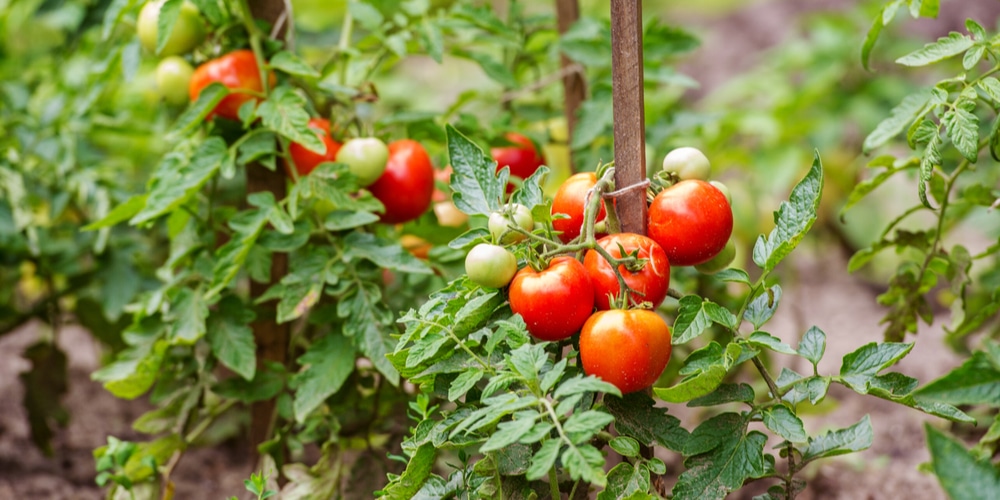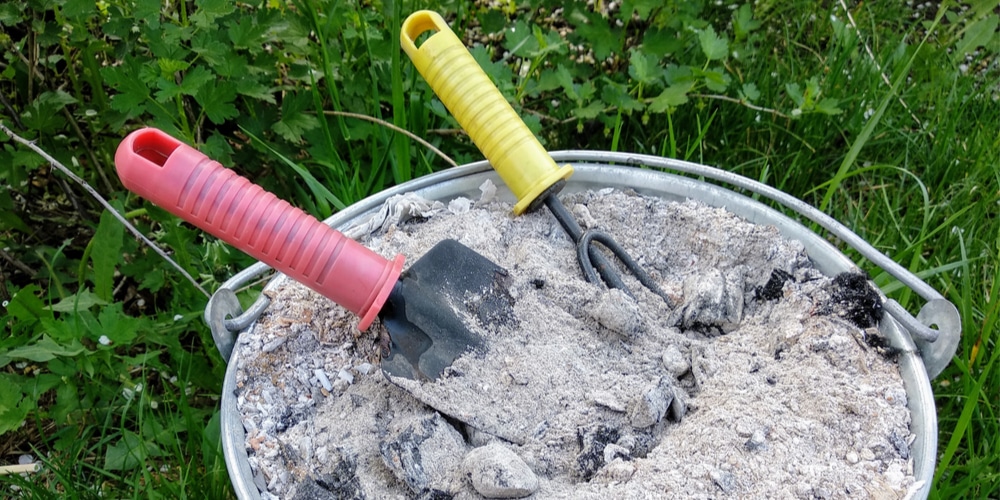Tomatoes require the correct soil pH to grow well; if the soils lacking calcium or has a low pH which indicates it’s too acidic, many gardeners add lime to the ground. Lime is a natural product that can reduce any nutrient deficiencies in the soil and improve how well water can penetrate the soil. Can too much lime hurt tomatoes? Let’s find out.
Too much lime can hurt tomatoes. A little lime can go a long way. It would help if you were careful when adding lime to your soil, as too much can increase the pH and stop your tomato plants from absorbing magnesium. Let’s look at the benefit of using lime on your tomatoes and the problems caused by giving your plants too much.
Is Lime Good for Tomato Plants?

Tomatoes grow best if the soil has a pH range of between 6.0 and 6.5. It’s a good idea to test the pH of your soil before adding lime or any other nutrients to your soil. If your soil’s pH is too low, adding lime will help increase it and allow you to get a better crop of tomatoes. Lime is beneficial to tomato plants in moderation.
Ensure that you follow the instructions on the packet and don’t put too much lime on your tomatoes. If you use too much lime, you can end up with soil with a high pH range. Tomatoes won’t grow well in soil that’s high in lime, and you’ll also risk burning the plants. It’s also worth noting that different soil types require different amounts of lime to change their pH range. Clay soil has differing lime requirements from sandy soil due to its structure.
The Dangers of Garden Lime
Garden lime is hazardous to humans, particularly children, and to pets if they consume it. Ensure that you use garden lime rather than quick lime, which is caustic and will burn your skin and plants.
After applying lime to your plants, it will continue to react with the soil for between two to three years. However, you’ll likely see the benefits in the first few months. The exact amount of time it takes to get results will depend on various factors, including the type of lime you use and the size of particles, as well as the soil’s current pH and its’ consistency.
Alternatives to Lime
Rather than risking adding too much lime to your soil, you may like to use wood ash, as this will also raise the soil’s pH and provide your tomato plants with calcium. It also adds other beneficial nutrients such as potassium, magnesium, and phosphorus to the soil. The number of nutrients in the wood ash will vary depending on the type of wood that was burned to create the ash.
Conclusion
Lime is good for tomato plants in moderation, but too much can increase the soil’s pH, which will affect the tomato plants’ growth. If you get lime on the plants, you can also burn them, so be careful when mixing lime into the soil and always use garden lime rather than quick lime. Always test your soil before adding lime to avoid ending up with a pH that’s incorrect for growing tomatoes.
Did you know that slugs and snails love to eat tomato plants?

